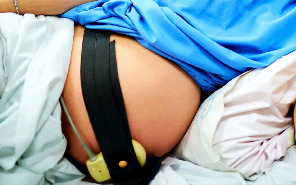

Delayed Delivery Causes Cerebral Palsy
Baby O was diagnosed with epilepsy and Cerebral Palsy after multiple failings by midwives resulted in a prolonged second stage of labour. Read on to see how we helped secure a fair settlement for the family, so they can support their child for life.
- Home >
- Case Studies >
- Delayed Delivery Causes Cerebral Palsy
Background
Baby O was delivered following a prolonged second stage of labour. The midwives failed to diagnose a delayed second stage.
They carried out two attempts at manual rotation without calling an obstetrician or commencing a CTG trace. They allowed the second stage of labour to continue for three hours without summoning an obstetrician or augmenting labour.
On delivery, Baby O was flat, with the cord loosely around his neck. He made no respiratory effort, so paediatricians were called and he was resuscitated. He required ventilation and experienced seizures within hours of birth.
Baby O has since been diagnosed with Dystonic Athetoid Cerebral Palsy and also has epilepsy. He cannot walk unaided and is unable to speak, although he can communicate through eye pointing. He is fed via a PEG (percutaneous endoscopic gastrostomy) tube.
This birth injury claim was pursued on the basis that the midwives failed to carry out adequate monitoring of the fetal heart rate during the first and second stages of labour. They also failed to diagnose or record the commencement of the second stage of labour, and failed to recognise that the second stage of labour had been prolonged and that obstetric review was required.
They then allowed the active second stage to continue for three hours and failed to arrange for obstetric review in light of the reduced frequency of contractions and the presence of maternal pyrexia, and they failed to commence a CTG trace.
In addition, the midwives carried out manual rotations incompetently, failed to commence CTG at the appropriate time or to arrange an obstetric review and unreliably recorded the fetal heart rate.
With adequate midwifery care, Baby O would have been delivered earlier and would have avoided injury. Instead, he now suffers from Quadriplegic Dystonic Cerebral Palsy with intellectual impairment and epilepsy.
Settlement
Proceedings were issued. The Defendants denied both breach of duty and causation until shortly before the exchange of expert evidence, when it was agreed that judgment should be entered for the Claimant for 85% of full value. Following investigations into quantum, the claim was settled shortly before trial for £6,100,100.
This case was led by Alan Mendham.
NOTE: While our case studies are designed to give an indication of the outcomes that can be achieved in these circumstances, the compensation awarded in individual cases can vary significantly due to a range of factors, including effects on life expectancy, the severity of the medical negligence that took place, and the financial impact.
Featured birth injury case studies
Featured birth injury insights







